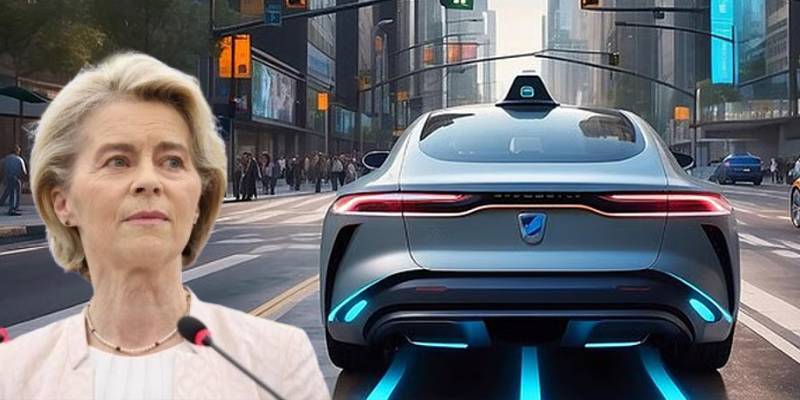
Europe at a Crossroads: Von der Leyen Demands AI-Driven Car Revolution
European Commission President Ursula von der Leyen has thrown down the gauntlet, urging EU nations to embrace an “AI-first” strategy in the automotive sector, with self-driving cars at the forefront.
Speaking at Italian Tech Week in Turin, she declared that if the U.S. and China are already cruising with autonomous vehicles, Europe should not be left in the slow lane, as reported in her latest call to action.
Her rallying cry comes as the continent’s carmakers—icons like Volkswagen, Renault, and Fiat—struggle to hold ground against the technological charge led by Tesla in the U.S. and a wave of innovative EV startups in China.
It’s not just about prestige; jobs, safety, and Europe’s industrial backbone are on the line.
What’s striking is how the EU’s ambitions align with broader global shifts. Just days ago, the United Nations amplified its warnings about the urgent need for international guardrails on artificial intelligence, stressing risks from autonomous weapons to biased algorithms.
Cars might seem less menacing than drones, but anyone who’s been in a near miss on a motorway knows how high the stakes really are.
Von der Leyen’s plan includes a network of European cities ready to host pilot projects—60 Italian mayors have already signed up.
Imagine Rome, Milan, and Turin as living laboratories where AI-driven buses, taxis, and private cars weave into daily life.
It’s ambitious, yes, but also reminiscent of when Europe once dared to lead in space and aerospace.
Meanwhile, the scale of development in Asia is staggering, with China now home to more than 5,300 AI enterprises, many already experimenting with transport systems that could redefine global standards.
Europe, by comparison, has the talent and the heritage, but risks losing the race if bold moves aren’t matched with funding and cohesive regulation.
On the other side of the Atlantic, American firms are pushing boundaries in other ways.
OpenAI, for example, is looking beyond software into hardware, planning a new family of devices that could redefine human-computer interaction entirely.
The lesson here is clear: innovation doesn’t wait for regulators to catch up.
The bigger question, though, is cultural. Will Europeans trust AI behind the wheel? A region known for its romance with Ferraris and Porsches may resist handing control to an algorithm.
But von der Leyen insists that “AI first means safety first.” The vision is fewer accidents, cleaner cities, and jobs that evolve rather than disappear.
Personally, I think this is Europe’s moonshot moment. It’s messy, it’s risky, but it’s also necessary.
Because if the future of mobility is written elsewhere, Europe won’t just lose an industry—it could lose a piece of its identity.





















